Ad
Ad
Digital enhancements to the transporter ecosystem - Tata Motors
Tata Motors improves its products, it is aggressively transforming its enterprise structure into a more versatile, trendy digital platform, in addition to harnessing several aspects of digital and know-how.

Historically, automakers have been involved in the process of building automobiles, selling them to customers, and providing services to those customers. Tata Motors is progressing beyond that in this digital age.
Typically, a consumer buys an automobile for a variety of reasons and expects to have a specific type of experience with it. According to Gopinath Jayaraj, CIO, of Tata Motors, the company is taking a closer look at what customers are experiencing when using the product and figuring out how to improve it.
On the cargo transportation front, the company had recently launched Tata Intra - India's first compact truck in the SCV segment, the globally benchmarked Prima, Signa, and Ultra trucks in the Medium & Heavy Commercial Vehicle (M&HCV) segment, the Xenon Yodha in the pickup category, and the segment-redefining Tata Ace.
Tata Motors has launched the Starbus Electric (9m and 12m) and Starbus Hybrid (12m) buses in passenger transportation, ushering in the future of mass public transportation. Tata Motors had rolled out a range of smart buses that are designed, produced, and powered by alternative fuels to fulfil the current and future passenger transportation needs in smart cities. These buses developed in-house, are secure and pleasant, as well as economically viable Made in India solutions. The house of TML is also working on the country's first "Fuel Cell Bus." Tata Motors has launched the Starbus Electric (9m and 12m) and Starbus Hybrid (12m) buses in passenger transportation, ushering in the future of mass public transportation.
Tata Motors, founded in 1945, is India's largest automotive manufacturer, with a revenue of Rs 2.82 lakh crores and over 75,000 employees.
While Tata Motors improves its products, it is aggressively transforming its enterprise structure into a more versatile, trendy digital platform, in addition to harnessing several aspects of digital and know-how.
"The relevant module placed within the car transfers data to its digital ecosystem via the cloud, and finally to the client's appliance. The customer is then able to view a number of related data associated with the automobile, such as its remaining cost and range, its position, the closest servicing centre and charging station, and so on. The consumers may send directions similar to turning on the AC and remotely opening the automobile from a distance," Jayaraj says.

Tata Motors also introduced Fleet Edge, a similar automobile solution for fleet management. The solution assists clients in improving their business operations through travel management, expense management, and maintenance planning. Over 180K linked Tata CVs are currently operating on Indian roads with these increased connectivity options.Digitizing the spares ecosystem to reduce transporter complexity
Transporters want their vans to be on the road practically 24 hours a day, seven days a week. When a vehicle breaks down and goes off-road due to mechanical issues, it becomes a problem for transporters because supply is delayed, ultimately affecting customer satisfaction.
While Tata Motors has a large dealership network across the country, vans may experience mechanical failure at a remote place in some cases.
Tata Motors, as a commercial vehicle manufacturer that appreciates its customers' success, recognized this issue and hastened the process of serving truck owners by delivering the spare and mechanic to the correct location to get it repaired.
The manufacturer has digitized its customer support and spare parts ecosystem. The company's online spare elements market is known as E-Dukaan, and the Bandhu app connects drivers and truck owners with roadside garages and mechanics.
"Our Bandhu software connects the company's mechanic ecosystems, allowing customers to build job playing cards on the fly and order spares online," Jayaraj explains.
The moment Tata Motors registers a VOR (Automobile-off-road) name (through the digital portal or a name), the assistance team begins determining the critical spare that is required and entering a DigiVOR order into the system.
Digi-VOR conducts a computerized search of all spare inventories held by Tata Motors with seller distributors and authorized service centers in the vicinity of that vehicle.
"We also allow the back-end system to place an order for that half so that it gets delivered into the hands of the mechanic and they can send it to the automobile as soon as possible," he says.
Tata Motors can boost customer satisfaction by ensuring the automobile is back on the road as soon as possible with this digital intervention. At the same time, it allows the manufacturer to ensure the sale of a genuine spare part to a buyer who would have ended up browsing for any spare available on the gray market.
News
Indonesia Pauses Massive Import Order From Tata, Mahindra
Indonesia has suspended its plan to import 105,000 pickup trucks and commercial vehicles from Indian giants Tata Motors and Mahindra. The $1.5 billion deal is aimed at Pr...
27-Feb-26 02:13 PM
Read Full NewsTata Motors Signs MoU with V.O. Chidambaranar Port to Deploy 40 Hydrogen Trucks at Tuticorin
Tata Motors signs MoU with VOC Port to deploy 40 hydrogen H2 ICE trucks, backed by government funding and new hydrogen infrastructure at Tuticorin port....
26-Feb-26 12:03 PM
Read Full NewsOlectra Greentech Limited Appoints Dr Allabaksh Naikodi as Head - EV Systems to Strengthen Powertrain and Battery Technology
Olectra Greentech strengthens EV tech by appointing Dr. Allabaksh Naikodi as Head - EV Systems, enhancing powertrain, battery systems, and innovation across electric buse...
25-Feb-26 07:21 AM
Read Full NewsNoida International Airport Awards Major Ground Mobility Contract to Mann Fleet Partners Limited to Strengthen Passenger Connectivity
Noida International Airport appoints Mann Fleet for rental cars and shuttle services, boosting passenger connectivity across Delhi-NCR ahead of its operational launch....
25-Feb-26 06:03 AM
Read Full NewsBalkrishna Industries Limited Enters India’s On-Highway Tyre Market with CV Range
BKT launches two-wheeler and CV tyres in India, invests ₹3,500 crore under Vision 2030, and targets 5% market share with ₹23,000 crore revenue goal by FY30....
24-Feb-26 10:21 AM
Read Full NewsBharatBenz Strengthens West Bengal Presence with Raniganj Dealership, 5 More Touchpoints Planned for 2026
BharatBenz launches new 3S dealership in Raniganj, West Bengal, expanding service network to 11 workshops, with five more planned in 2026 to strengthen customer support....
23-Feb-26 10:37 AM
Read Full NewsAd
Ad
Latest Articles
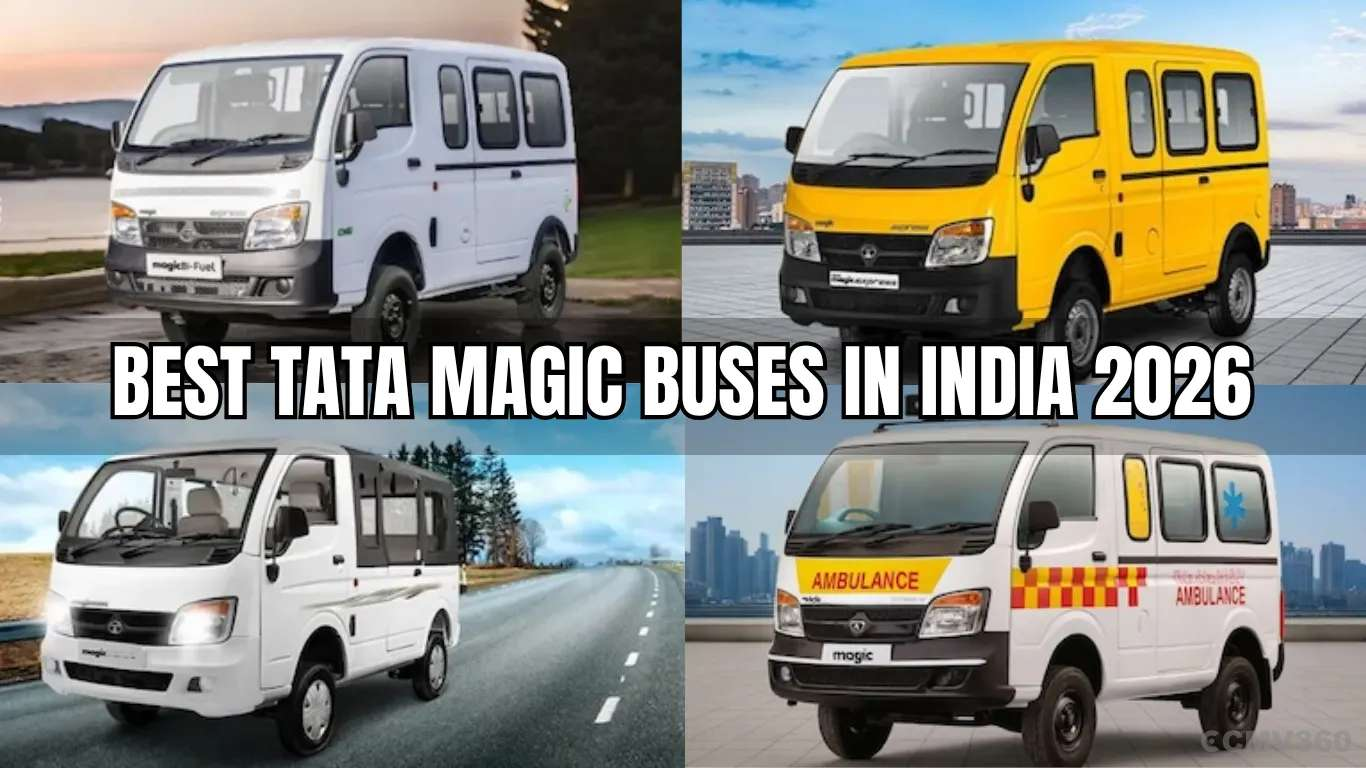
Best Tata Magic Buses in India 2026
25-Feb-2026
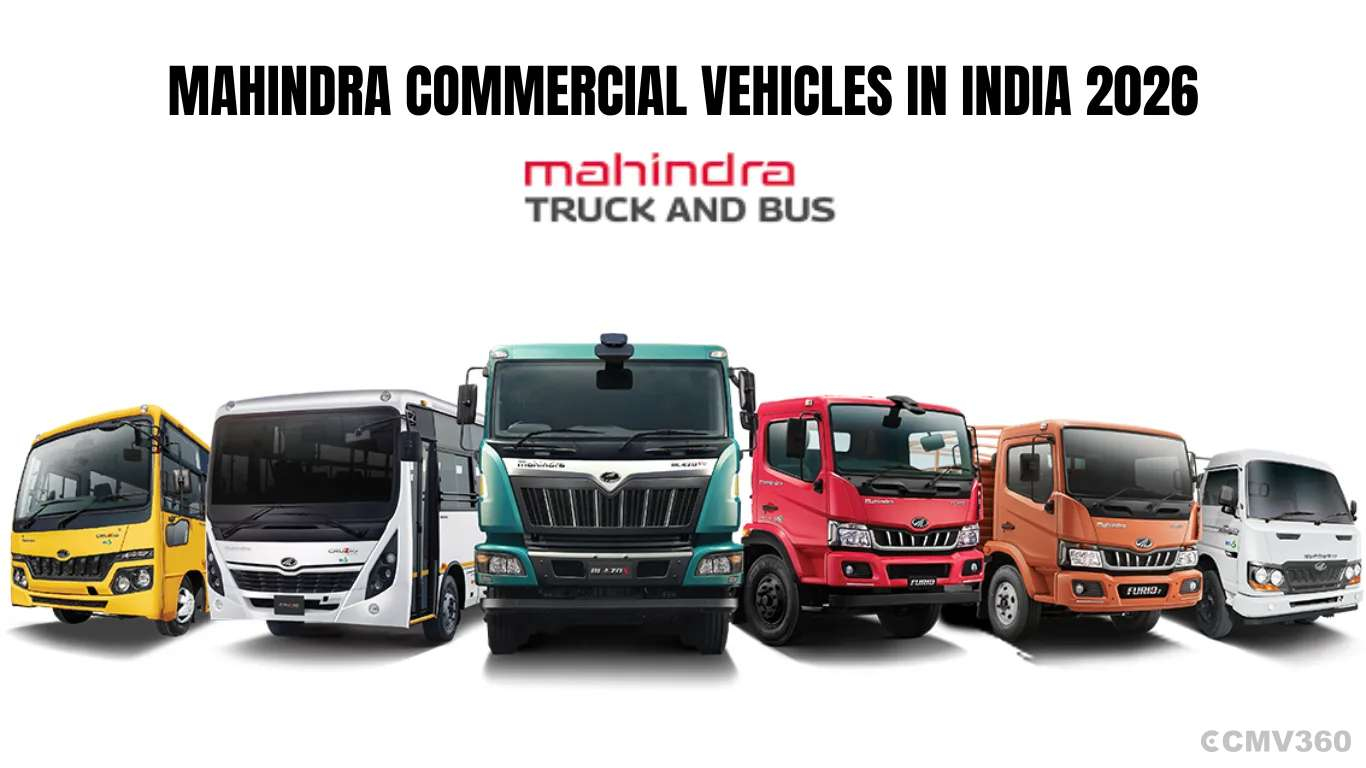
Mahindra Commercial Vehicles in India 2026
24-Feb-2026
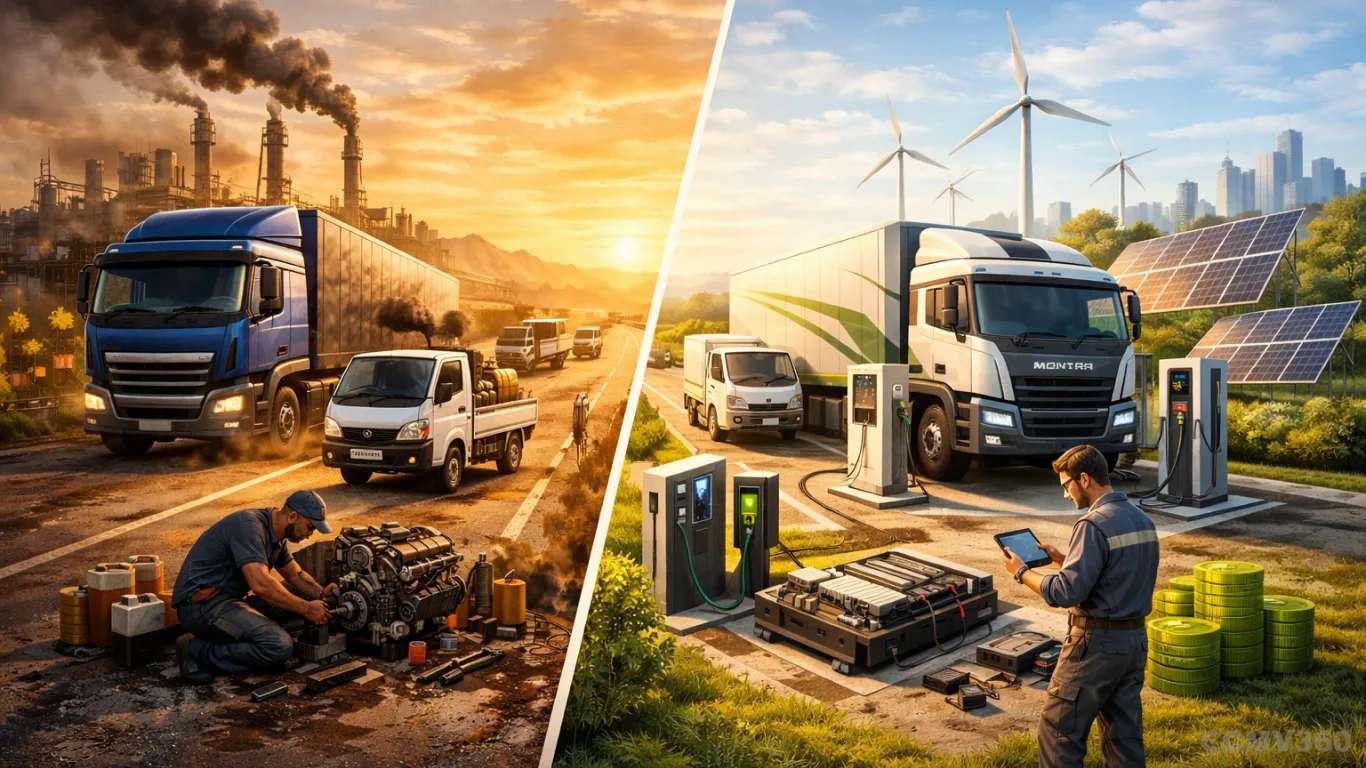
Diesel vs Electric Trucks in India 2026: Detailed Comparison of Cost, TCO, Subsidies, Charging & Best Choice for Fleets
21-Feb-2026
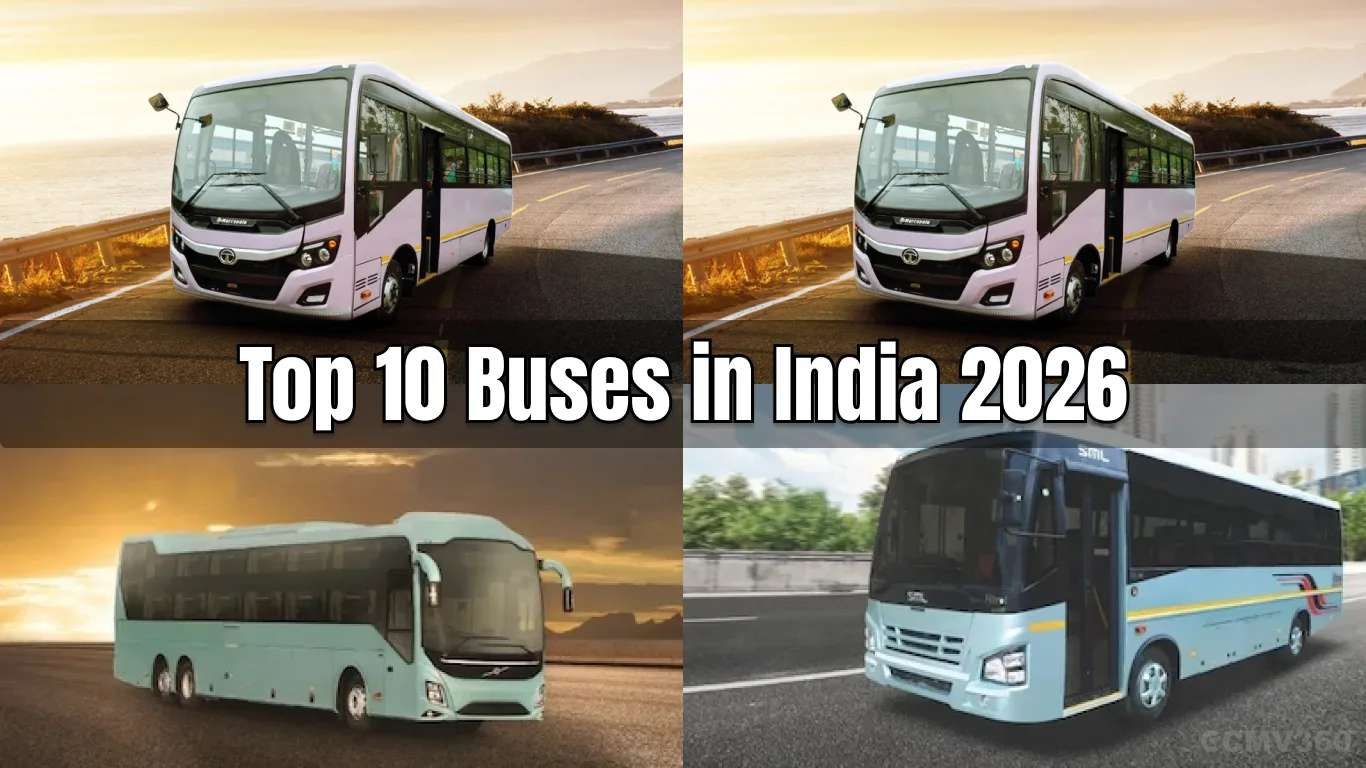
Top 10 Buses in India 2026
19-Feb-2026
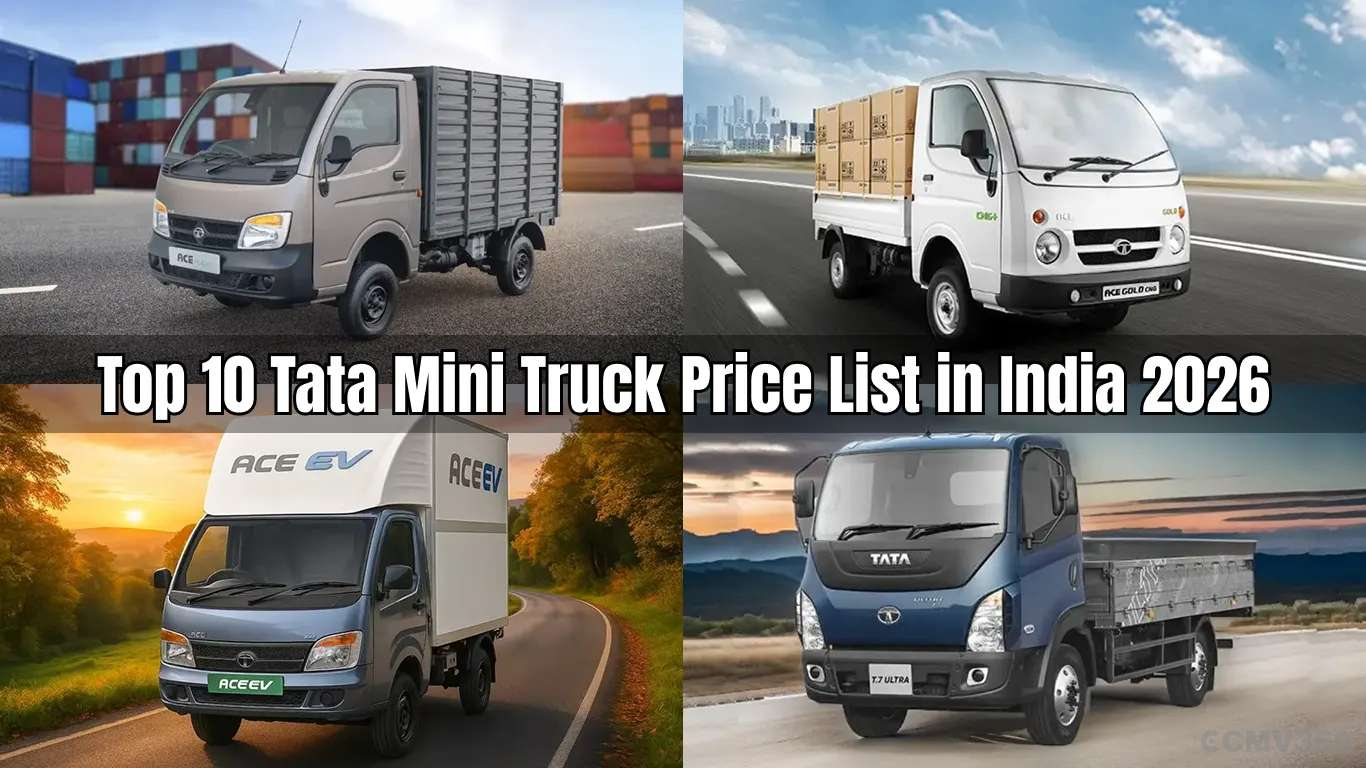
Top 10 Tata Mini Truck Price List in India 2026
18-Feb-2026
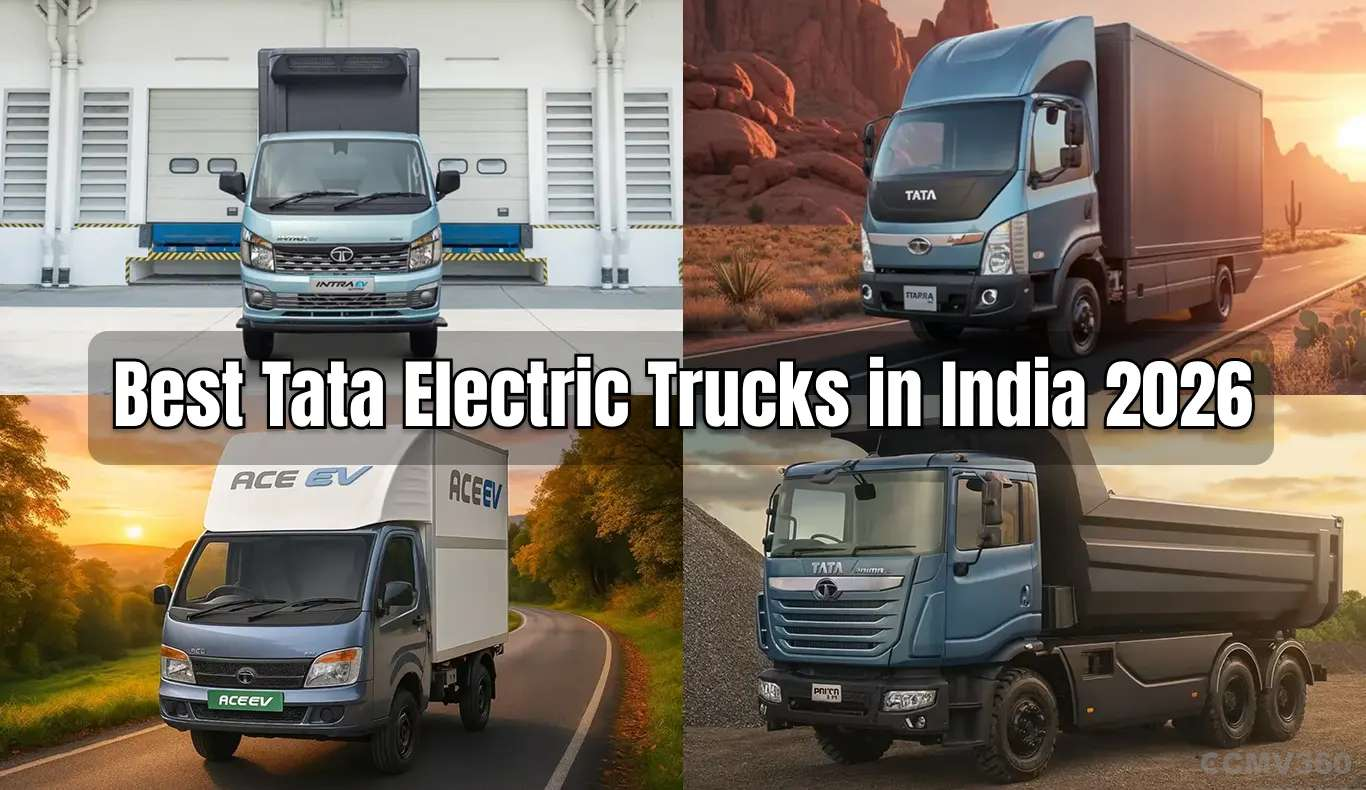
Best Tata Electric Trucks in India 2026
16-Feb-2026
View All articles





